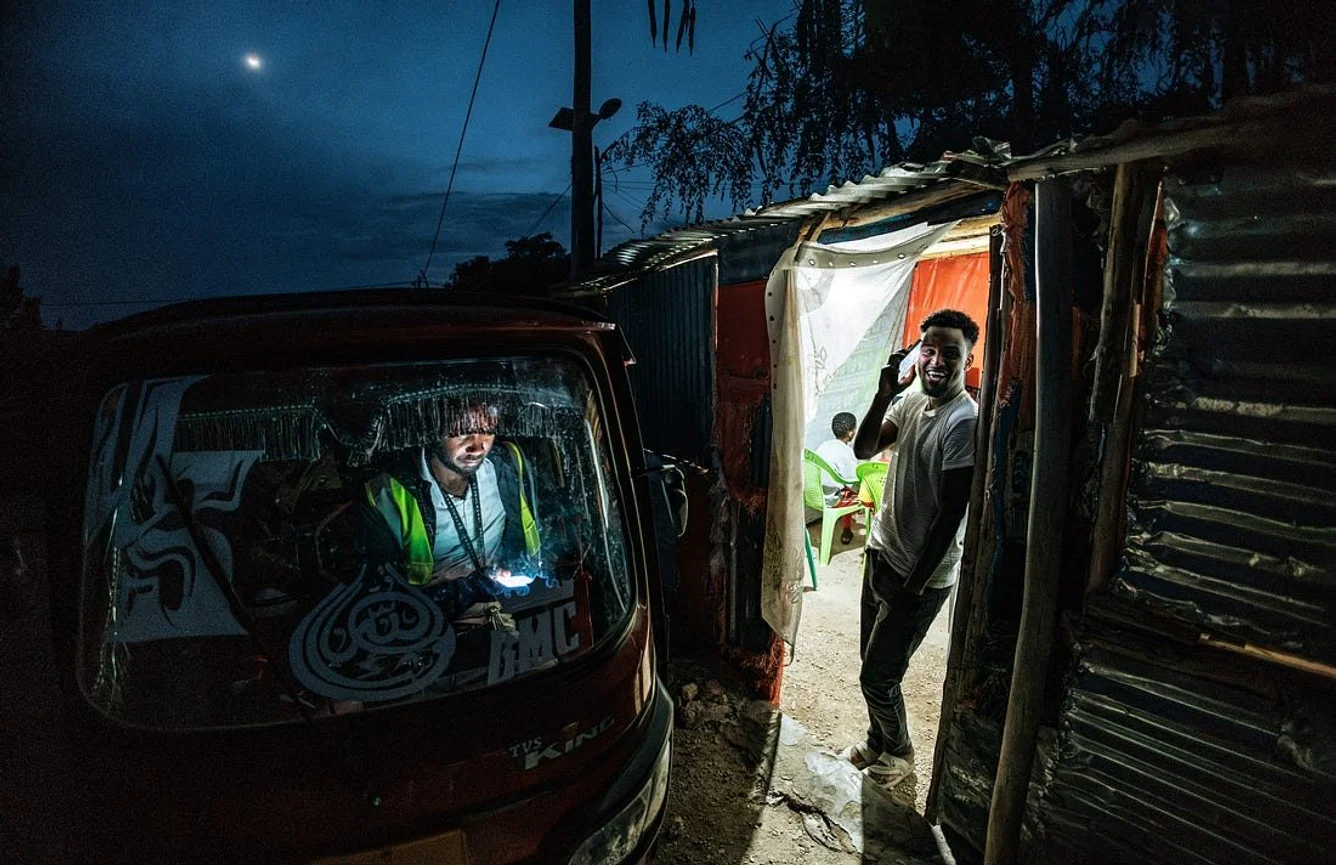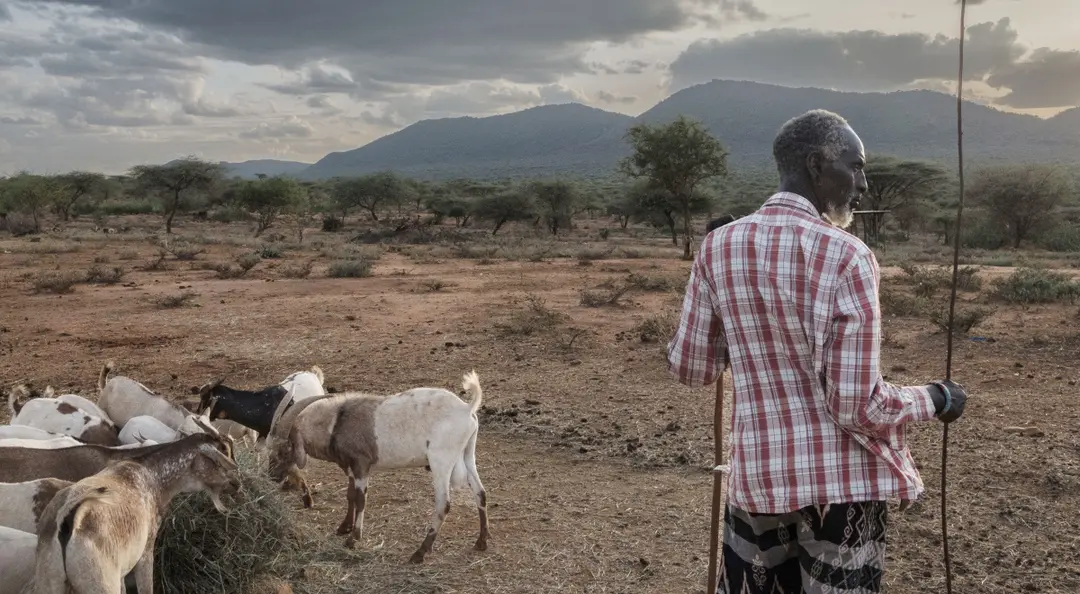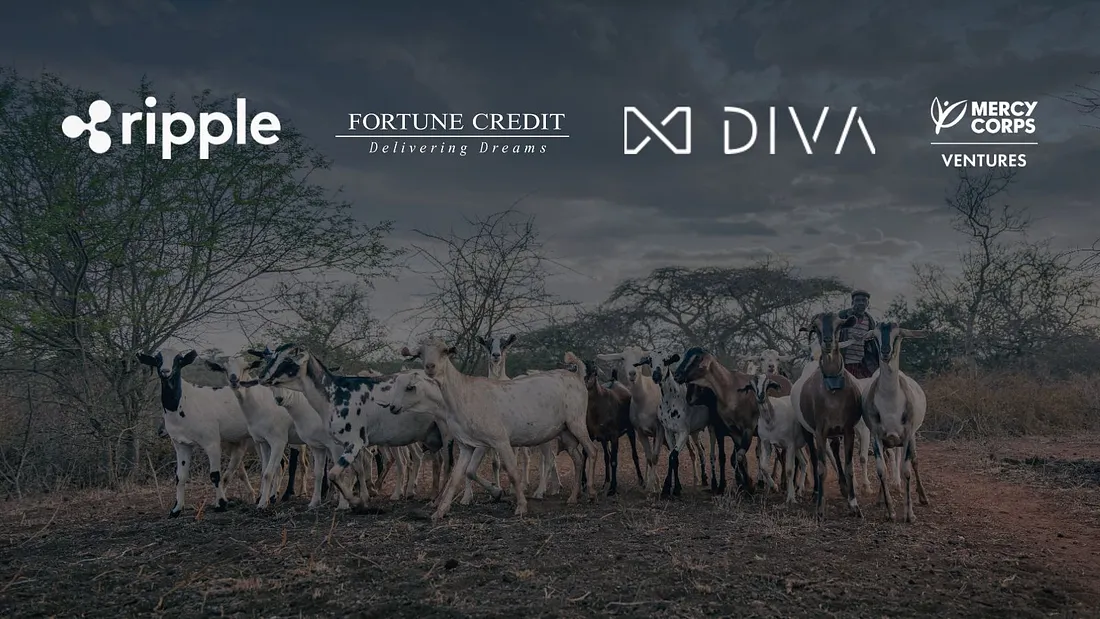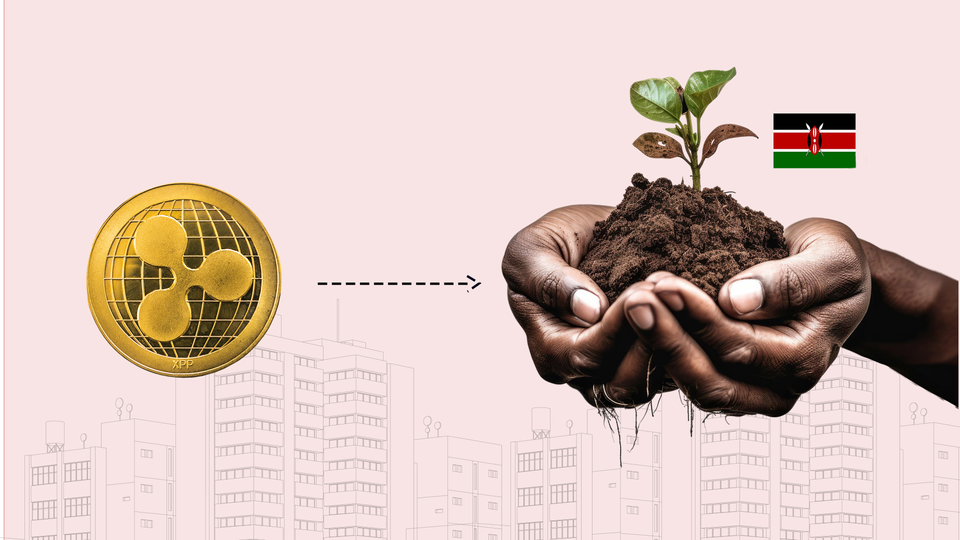
Blockchain Insurance Tackles Kenya's Climate Credit Crisis
By Natalia Elliot
September 05, 2025
Mercy Corps Ventures is the impact investing arm of Mercy Corps
Mercy Corps Ventures partners with BlockBima, Fortune Credit, Shamba Network and RiskShield to test parametric insurance embedded in microloans for climate
Sub-Saharan Africa's micro, small and medium enterprises could be protected from climate shocks through blockchain embedded insurance.
The blockchain-powered parametric insurance is embedded within microloans in a pilot scheme run by Mercy Corps Ventures.
Ripple has announced that its USD-backed stablecoin, RLUSD, will be backing the pilot programme.
Continental scale challenge
The region's 44 million MSMEs, which account for up to 80% of all employment, remain chronically under-insured against mounting climate risks.
This vulnerability occurs against a backdrop of accelerating climate change, with Africa warming faster than the global average and extreme weather events becoming increasingly frequent.
By 2030, an estimated 118 million Africans may confront severe drought conditions, creating unprecedented challenges for small business sustainability.
Women-owned enterprises face particularly acute risks, despite representing roughly one-third of all MSMEs across the region.
Female entrepreneurs encounter what researchers describe as a "triple differential" vulnerability to climate shocks.
Women business owners demonstrate greater sensitivity to climate risks due to their concentration in specific sectors and enterprise types.
They face additional barriers to business environment adaptation, including restricted access to finance and limited financial literacy support.
Female entrepreneurs must simultaneously manage climate risks at both business and household levels, creating compounding vulnerabilities.
Against this continental backdrop, Kenya's microfinance sector faces an escalating crisis as climate-driven income shocks push loan default rates from historic levels of 15-20% in 2020 to nearly 40% by 2024.
Credit: Mercy Corps Ventures
Digital lenders across the country have watched their portfolios deteriorate as unpredictable weather patterns devastate small business revenues and force increasingly restrictive lending terms.
A 2021 study revealed that only around 17% of small and medium enterprises in Kenya accessed loans for climate adaptation, with many forced to downsize operations or sell assets to survive economic shocks.
This deteriorating landscape has prompted Mercy Corps Ventures to launch an ambitious pilot programme designed to embed blockchain-powered parametric insurance directly within microcredit products.
Automated protection mechanism
Mercy Corps Ventures has partnered with BlockBima, Fortune Credit, Shamba Network and RiskShield to launch a new pilot testing the use of blockchain-based parametric insurance to protect MSMEs in Kenya against the negative impacts of excessive rainfall.
The pilot embeds parametric rainfall insurance directly into Fortune Credit's 5-day digital loans.
When excess rainfall occurs during the loan period, the insurance automatically reduces the borrower's repayment obligation, without requiring any claims filing or assessment process.
The innovation addresses a fundamental weakness in traditional insurance models, which typically involve lengthy claims processes that can leave vulnerable businesses waiting weeks or months for relief.
Mercy Corps Ventures explainer of how blockchain insurance will work for parametric insurance
Kennedy Ng’ang’a, Co-founder of BlockBima says: “Climate change will continue to pose increasing challenges for micro-enterprises. But with innovations like parametric insurance embedded into everyday financial services, we can ensure that a heavy rainfall doesn’t wash away someone’s livelihood and financial future.”
Kennedy Nganga, Co-founder of BlockBima. Credit: CioAfrica
Smart contract architecture
Each eligible loan includes an insurance premium that is pooled into a smart contract on a public blockchain.
The technical infrastructure relies on multiple specialist partners, each contributing essential capabilities to the overall system.
BlockBima operates as a web3 climate insurance platform that builds and runs the parametric smart contract and risk pool.
Fortune Credit functions as the Kenyan microfinance institution that issues the loans, receives insurance payouts and applies them to borrowers' accounts by reducing loan balances or extending new credit.
Real-time data integration
Shamba Network operates as a Nairobi-based data oracle that collects high-resolution weather and ecological data.
Shamba feeds more than 30 satellite and sensor data streams into the blockchain every day, powering the parametric triggers.
This continuous data flow enables the system to monitor rainfall conditions across all covered areas in near real-time, eliminating the need for manual weather assessments.
RiskShield functions as an actuarial consultancy that designed the index insurance, setting the trigger thresholds and pricing for the product.
Credit: Mercy Corps Ventures
Operational innovation
The pilot incorporates several technological advances specifically designed for climate-vulnerable MSMEs.
Data-driven triggers utilise Shamba Network's AI-enhanced satellite data to monitor rainfall in near real-time across all covered areas.
The parametric design ensures that when rainfall exceeds pre-defined thresholds, payouts are triggered automatically.
Severity tiers mean the greater the rainfall, the greater the percentage of the loan that is covered.
Blockchain execution allows smart contracts to process claims and deliver payouts quickly and with verifiable transparency.
Direct balance reduction means borrowers receive an SMS notification of their reduced repayment amount.
Market impact potential
Access to embedded insurance and microcredit will build climate resilience by helping MSME borrowers better prepare for, adapt to and recover from climate-related shocks and risks.
Embedding climate insurance within microloans will make affordable credit more accessible for MSMEs while improving the willingness of lenders to provide credit to climate-vulnerable businesses.
The approach could fundamentally alter risk assessment in Kenya's microfinance sector, where lenders have increasingly avoided serving businesses in climate-exposed sectors.
The use of web3 and smart contracts will result in better operational efficiency and faster claim payouts to MSMEs.
Future scaling ambitions
This pilot could showcase how web3 technology might help build resilience for underserved businesses.
By tying loans to an automated climate cover, Mercy Corps Ventures aim to turn microfinance into a true adaptation tool.
If successful, the model could address similar challenges across other African markets where climate volatility increasingly undermines traditional credit structures.
However, the pilot must first demonstrate both technical reliability and financial sustainability before broader adoption becomes commercially viable for mainstream lenders.
Natalia Elliot
Author
Related Articles

Successful completion of the 5th DIVA Donate campaign
The successful completion of the 5th DIVA Donate campaign underscores our ongoing commitment to increasing the climate resilience of vulnerable communities through blockchain technology.

Scaling Up Anticipatory Cash Transfers Pilot in Kenya
The pilot demonstrated that the use of blockchain smart contracts led to a 75% reduction in transfer costs and a 90% decrease in settlement time compared to traditional transfers. Moreover, the majority of pilot participants reported improvements in their ability to meet major unexpected expenses.

Ripple donates 25,000 RLUSD stablecoin to provide drought relief to Kenyan herders
The partnership will see these livestock herders receive stablecoin donations to help subsidize food and water costs for their animals in periods of crippling drought, the type that ravages Kenyan rural communities.